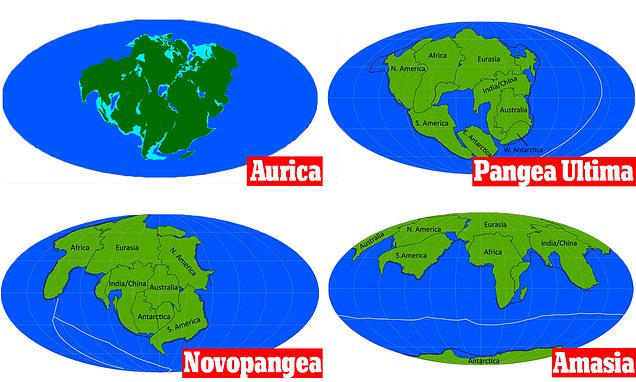The register shows several supercontinents have been formed on Earth's History:
"The most recent supercontinent, Pangaea, formed about 300 million years ago (0.3 Ga). There are two different views on the history of earlier supercontinents. The first proposes a series of supercontinents: Vaalbara (c. 3.6 to c. 2.8 billion years ago); Ur (c. 3 billion years ago); Kenorland (c. 2.7 to 2.1 billion years ago); Columbia (c. 1.8 to 1.5 billion years ago); Rodinia (c. 1.25 billion to 750 million years ago); and Pannotia (c. 600 million years ago), whose dispersal produced the fragments that ultimately collided to form Pangaea".
Source: Supercontinent Cycle, Wikipedia
I would expect then a new supercontinent to form in some million years, but this implies Atlantic or Pacific Ocean, both with ocean-ridges and divergent margins, to disappear.
Wich one will be closed and wich one will survive to Supercontinent Cycle?
